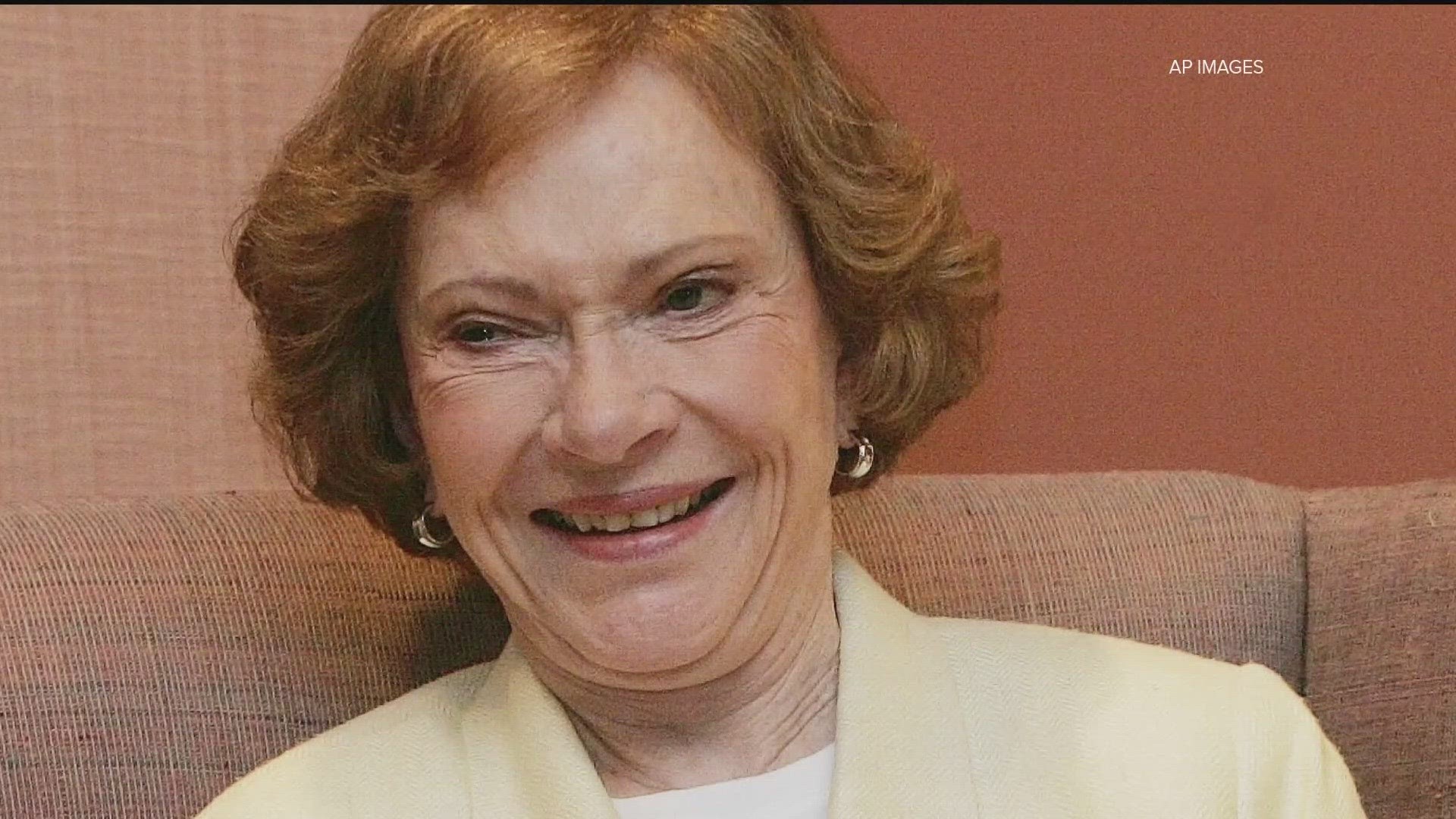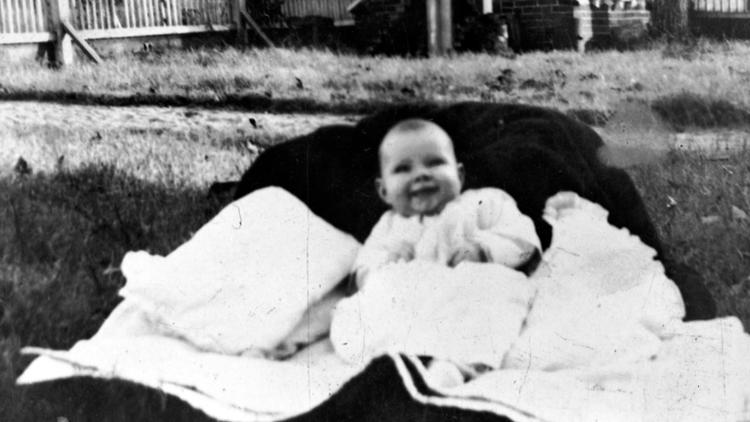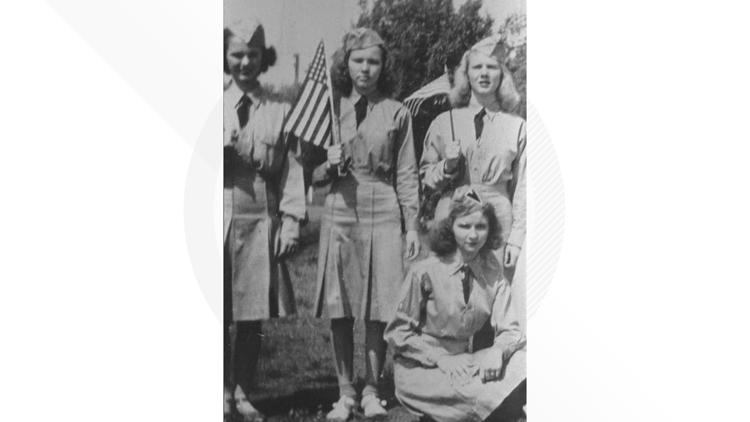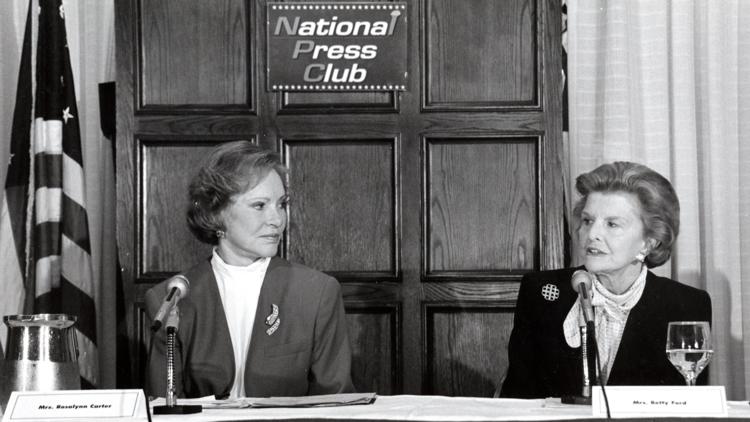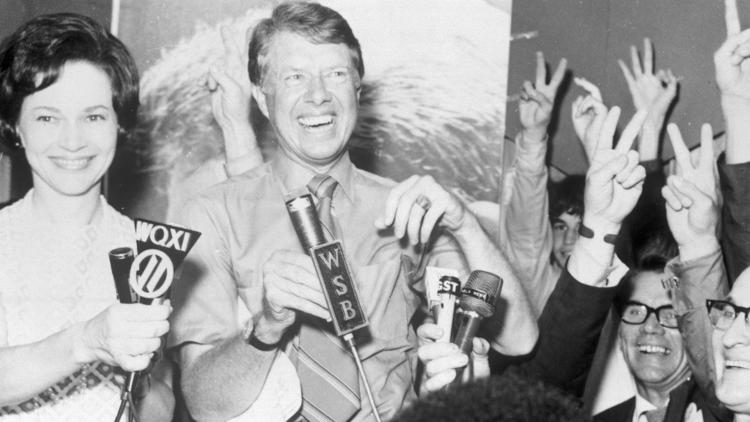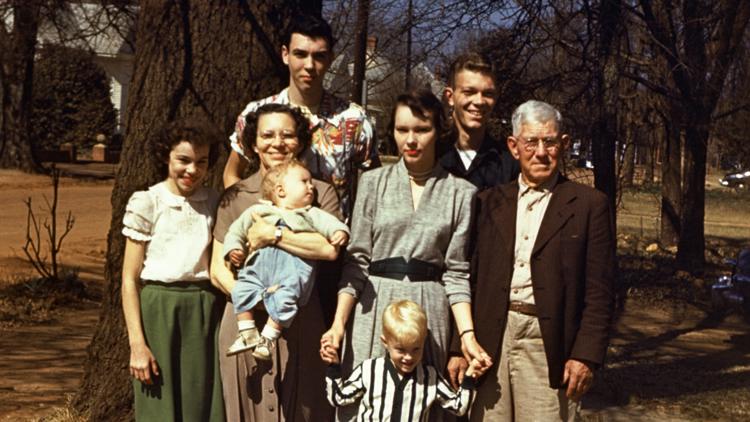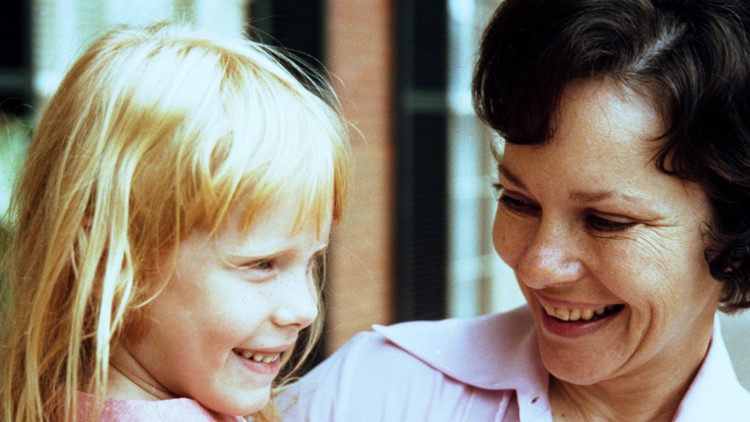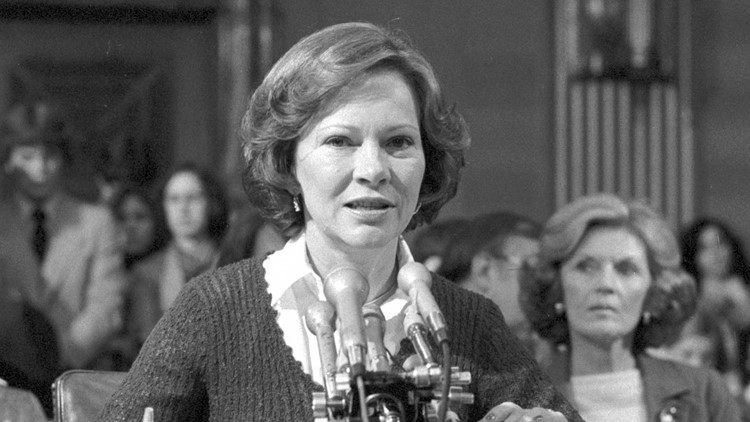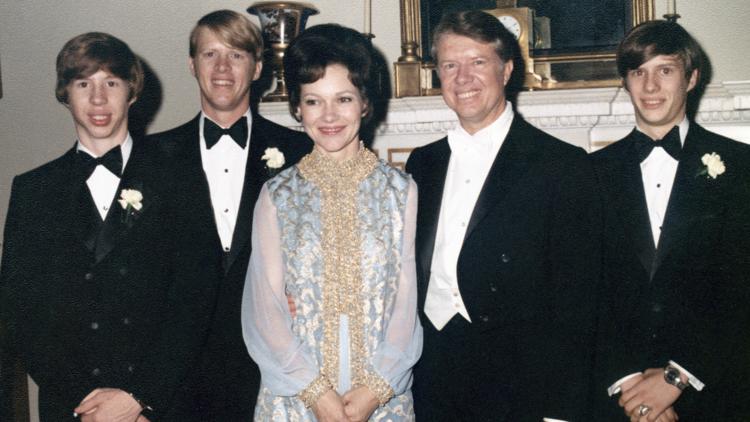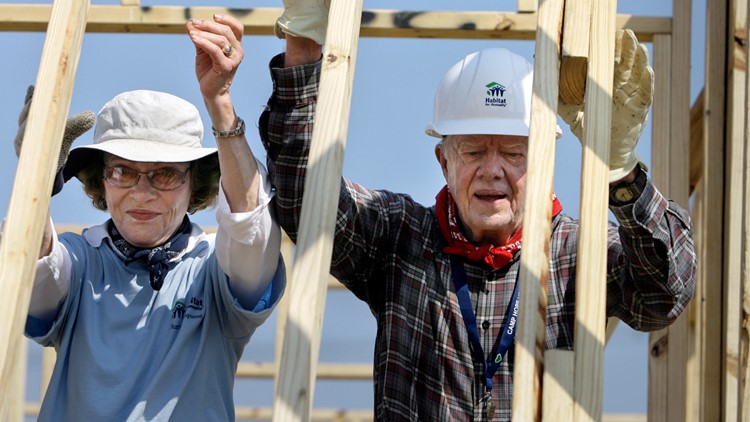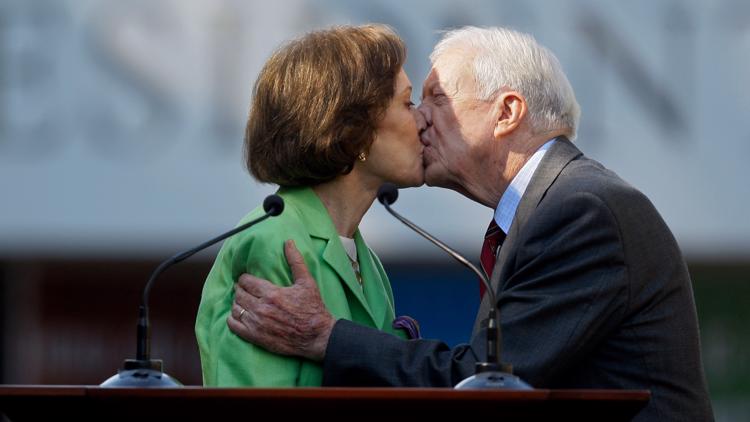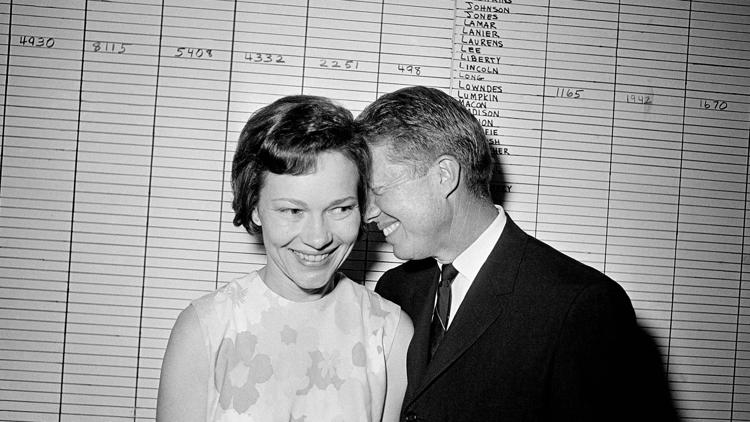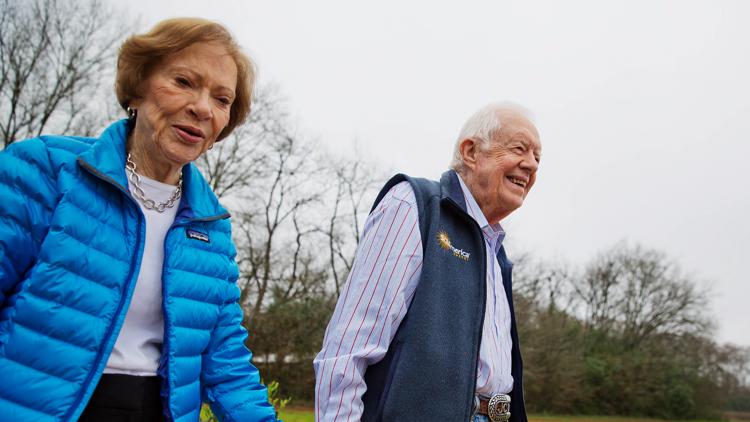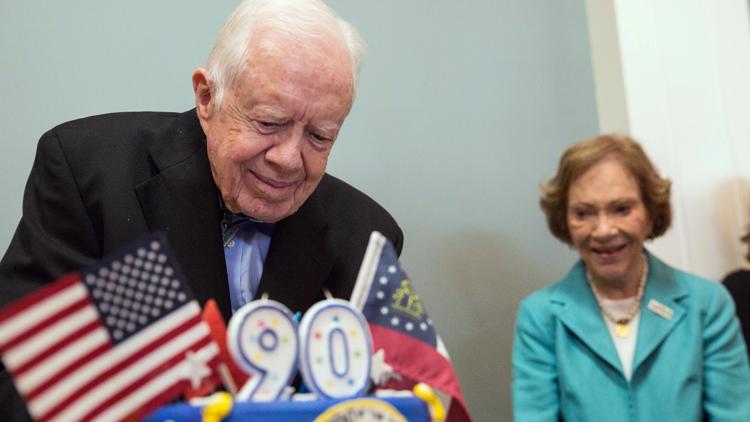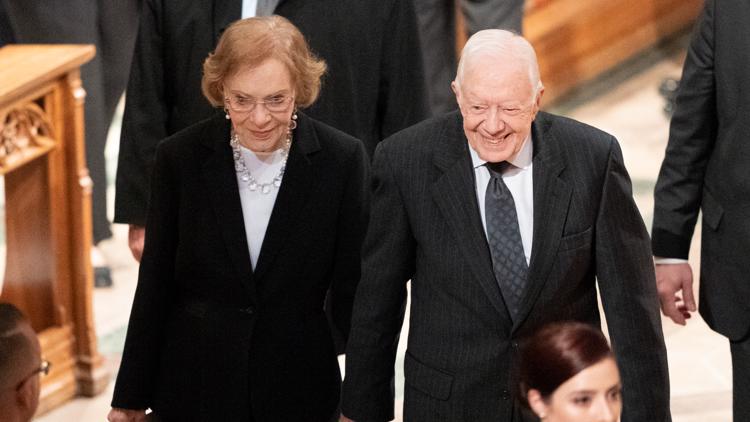Here's how you can honor Rosalynn Carter and her legacy | Public memorials, causes
The Carter Center wants others to honor her trailblazing initiatives.
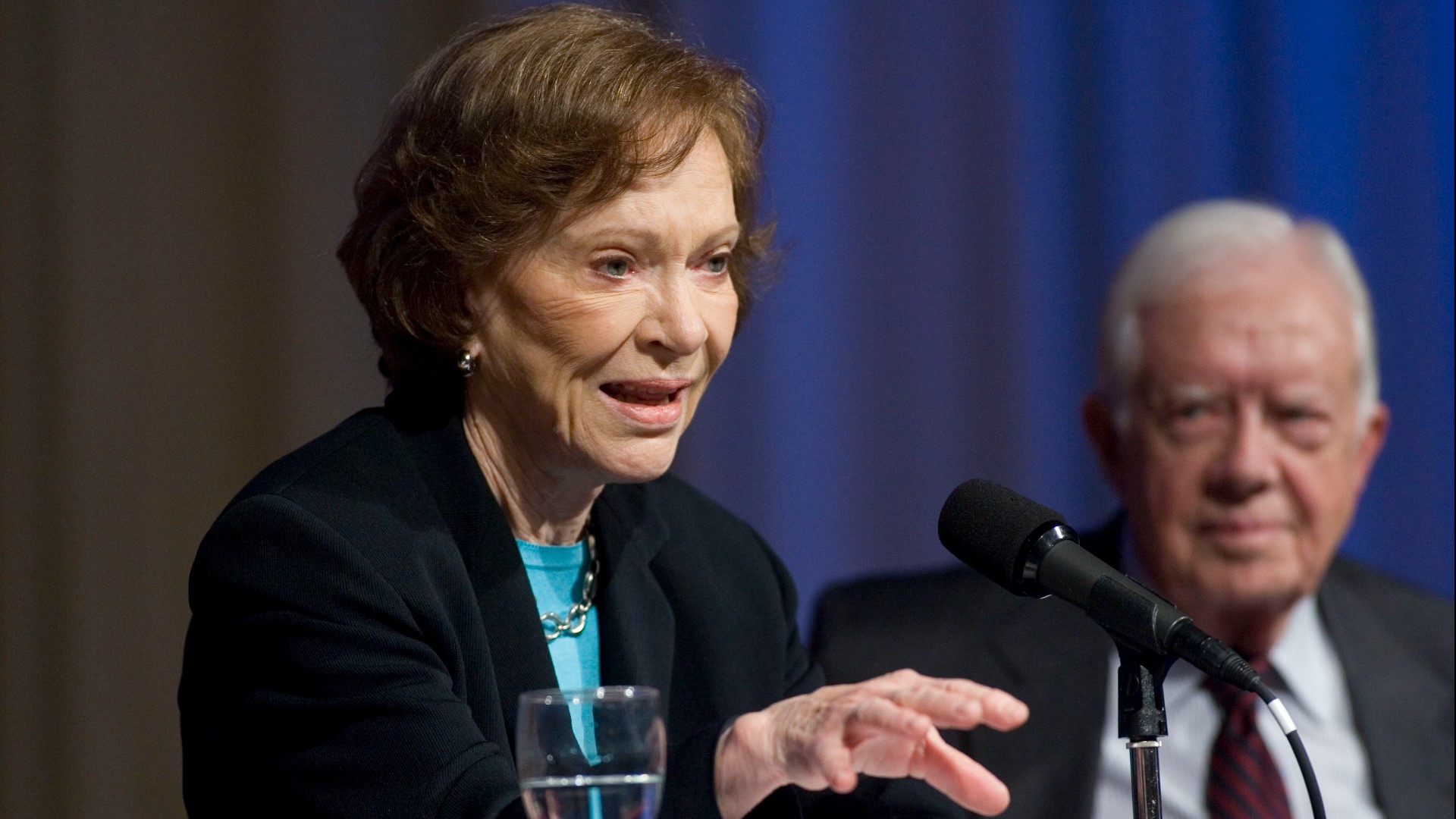
The nation is mourning the loss of former First Lady Rosalynn Carter. The Carter Center announced her passing Sunday. She was 96 years old.
According to the Center, she died peacefully in Plains, Georgia, with family by her side.
Rosalynn was diagnosed with dementia in May, and it was announced on Nov. 17 that she had entered hospice. At the time, The Carter Center said she and her husband, former President Jimmy Carter, were "spending time with each other and their family."
"One of the greatest legacies she leaves behind is The Carter Center," her grandson, Jason Carter said in a note to Carter Center Partners. "She has been grateful for your support of her remarkable efforts to improve the welfare of people everywhere, whether by working to eradicate diseases, reducing the stigma of mental illnesses, or bringing peace to far corners of the world."
From honoring her lifetime's work, virtual shows of condolences to public mourning, this story serves to offer all of the ways people can pay homage to the "First Lady from Plains."
Participate in public memorial services
Monday, Nov. 27, begins three consecutive days of ceremonies for her loved ones and the public to pay their respects to the former first lady.
Motorcade, wreath-laying ceremonies in Americus
A wreath-laying ceremony will take place Monday, Nov. 27 around 11 a.m. in front of Building 1 of the Rosalynn Carter Health and Human Sciences Complex at Georgia Southwestern State University in Americus.
Public repose at Carter Presidential Center in Atlanta
Later Monday evening, Mrs. Carter's body will lie in repose in Atlanta from 6 p.m. to 10 p.m. at the Jimmy Carter Presidential Library and Museum. Public parking will not be available. People will have to take a shuttle from St. Luke's Episcopal Church, which will run every 15 minutes from 5:30 to 9 p.m.. More details about transportation can be found here.
Visitors are subject to search upon entry into the Carter Presidential Center. Prohibited items must be surrendered and will not be returned. Backpacks, bags, purses, clutches, and camera bags are prohibited on the bus. Diaper bags are allowed and will be searched by hand. The following items are prohibited: aerosols; ammunition; animals other than service animals; bicycles; balloons; coolers; drones and other unmanned aircraft systems; explosives; firearms; glass; thermal or metal containers; laser pointers; Mace or pepper spray; packages; selfie sticks; toy guns; weapons of any kind; any other items determined to be potential safety hazards.
Lay flowers at Presidential Center Sign and Plains monument
In Atlanta, people may lay flowers in front of the large granite-and-steel sign at the main entrance to the Carter Presidential Center. In Plains, flowers may be left near the Jimmy Carter Monument in downtown.
Condolence books will be available to sign at GSW, the Plains Welcome Center, Plains High School and in Atlanta at the Carter Presidential Center.
Motorcade, final farewell in Plains
Mourners may line motorcade routes during each movement. The official times and routes will be announced closer to the times of the movements. The motorcade viewing opportunities include:
- Leaving Phoebe Sumter Medical Center en route to Georgia Southwest University on the morning of Monday, Nov. 27.
- Leaving GSW en route to The Carter Presidential Center on Monday, Nov.27, midmorning.
- Leaving The Carter President Center en route to Glenn Memorial United Methodist Church on the Emory University campus on the morning of Tuesday, Nov. 28.
- Leaving Glenn Memorial United Methodist Church on the afternoon of Tuesday, Nov. 28.
- Leaving a private ceremony at Maranatha Baptist Church in Plains en route to a family-only interment at the Carter residence around midday on Wednesday, Nov. 29. This will be the final opportunity for the people of Plains and visitors to say farewell to Mrs. Carter.
The memorial services at Glenn Memorial United Methodist Church on Tuesday and the funeral service at Maranatha Baptist Church on Wednesday are both private ceremonies and not open to the public.
11Alive will cover events as allowed with respect to the Carter family. Our coverage can be found on the following platforms:
- 11Alive.com
- 11Alive+ streaming app on
- 11Alive News mobile app
- 11Alive YouTube channel
Rosalynn Carter tribute page
The Carter Center has published a memorial website, outlining the former first lady's legacy and inviting the public to share their condolences.
In it, people can share their memories in a condolence book or peruse tributes as the Center works to update the overflowing support for one of the greatest female political figures of her time.
Rosalynn Carter's early life
Contribute to her causes
Seeing as she was known as a champion of mental health, The Carter Center is asking, in lieu of flowers, people consider contributing to the Carter Center Mental Health Program or the Rosalynn Carter Institute for Caregivers. Those who'd like to contribute to her lifelong causes can do so here.
In the final decade of her life, she was also dedicated to Monarch butterfly conservation.
Returning to Georgia after her husband Jimmy Carter's presidency, she worked to create more awareness about the diminishing Monarch butterfly population. In her aspiration to create a butterfly garden on her Georgia property, she sought to promote butterfly and habitat conservation, according to the National Park Service.
What started as a seed of an idea grew into the Rosalynn Carter Butterfly Trail.
To learn how to join this growing network of gardens, or to learn more about the cause, click here.
From Plains to the White House
Rosalynn and Jimmy Carter formed a lifelong partnership that took them from a small town in south Georgia to the White House. In many respects, the legacy of the Carter presidency – which is perhaps better defined by the decades of post-presidency humanitarian work done by the couple than by any one presidential act while in office – is as much hers as his.
Rosalynn was a key surrogate in Jimmy Carter’s political campaigns and then a critical component of his presidency from 1977-80, essentially his closest adviser who was once described in the national media as the “second-most powerful person in the United States.”
PHOTOS | Rosalynn Carter always by Jimmy Carter's side
Beyond her unofficial influence, the reach of her official duties included formal trips to Latin America as the president’s personal representative and a position as the Honorary Chairperson of the President’s Commission on Mental Health. She attended Cabinet meetings, an extraordinary level of involvement for a first lady, and was the first first lady to take up her own active office in the East Wing.
For more on her life and legacy, click here.


